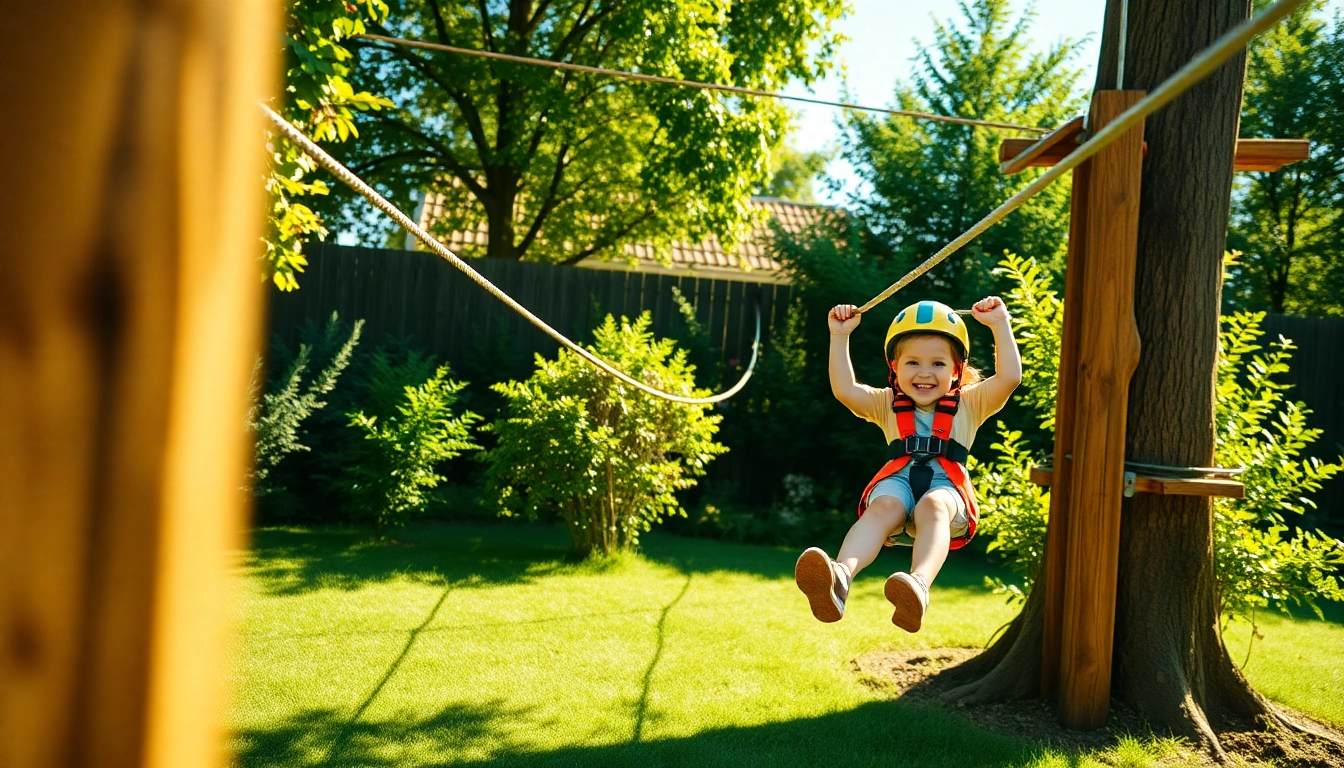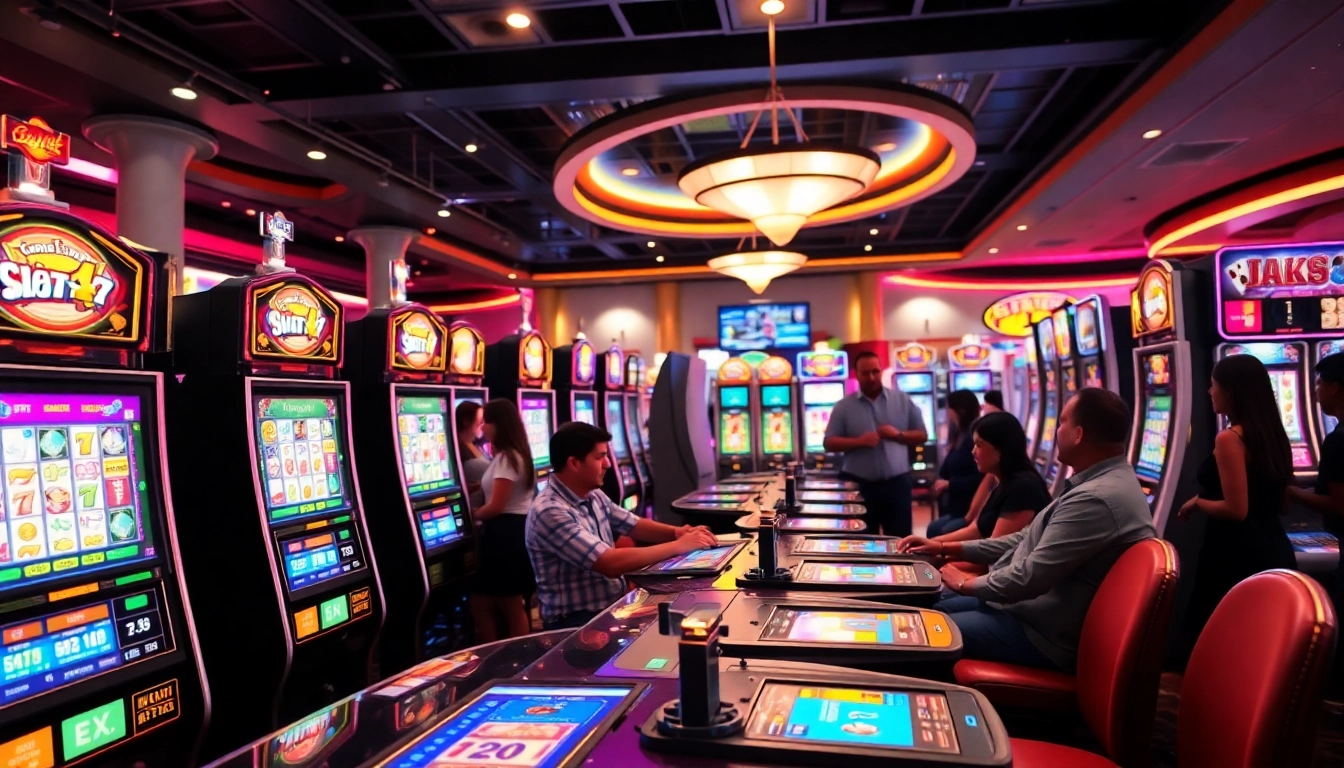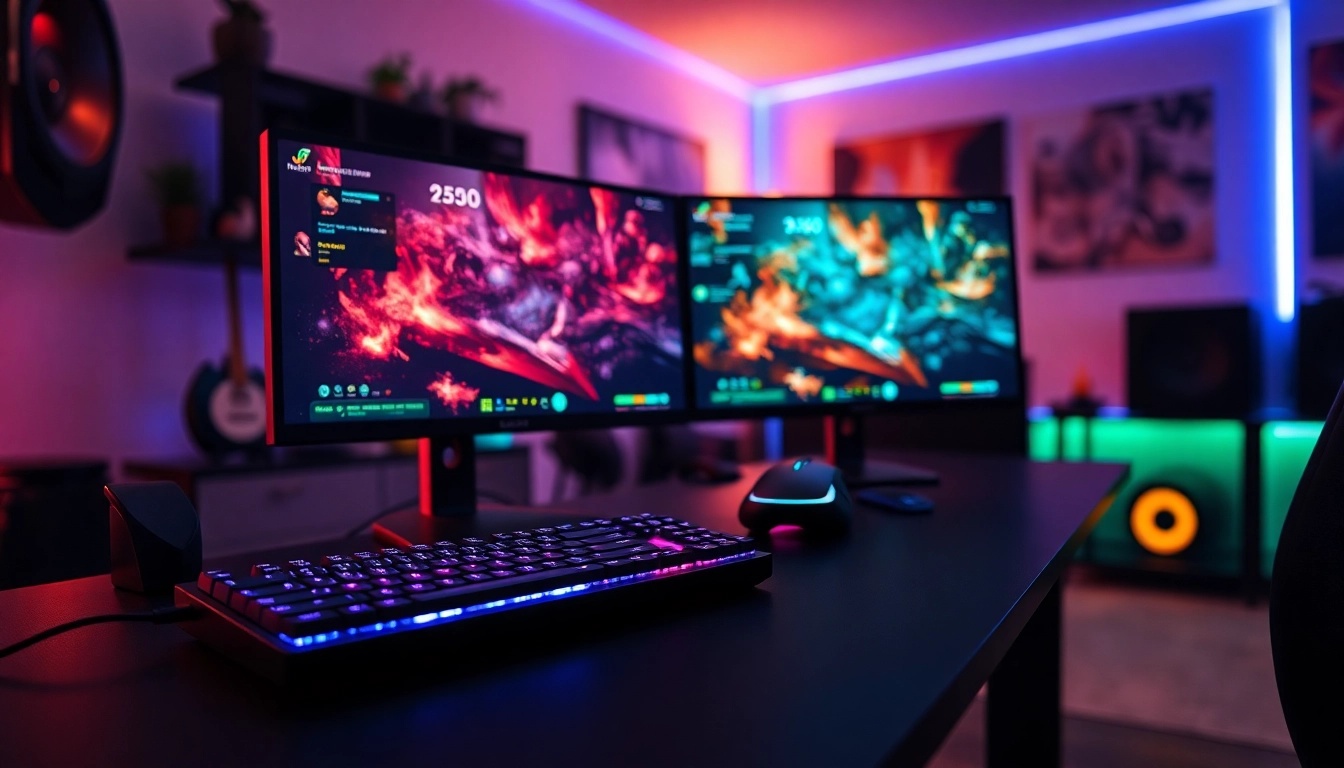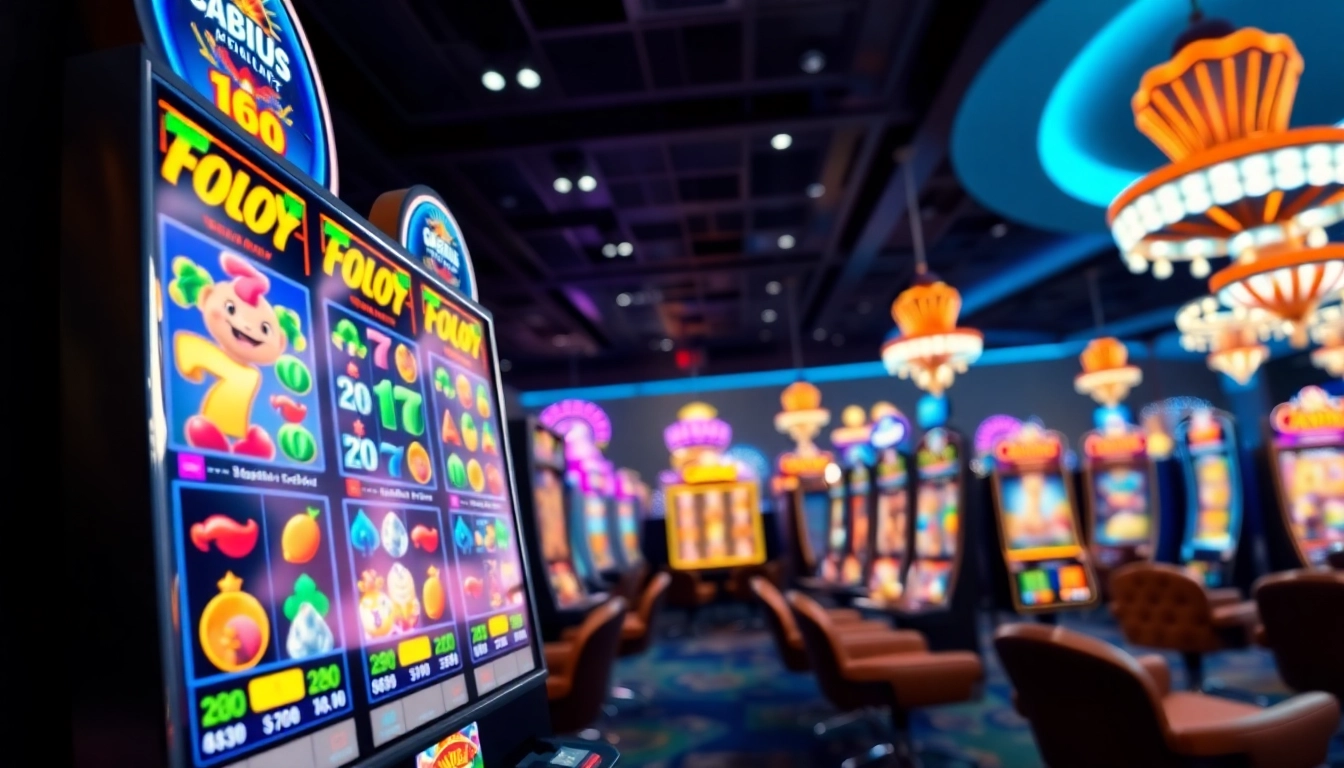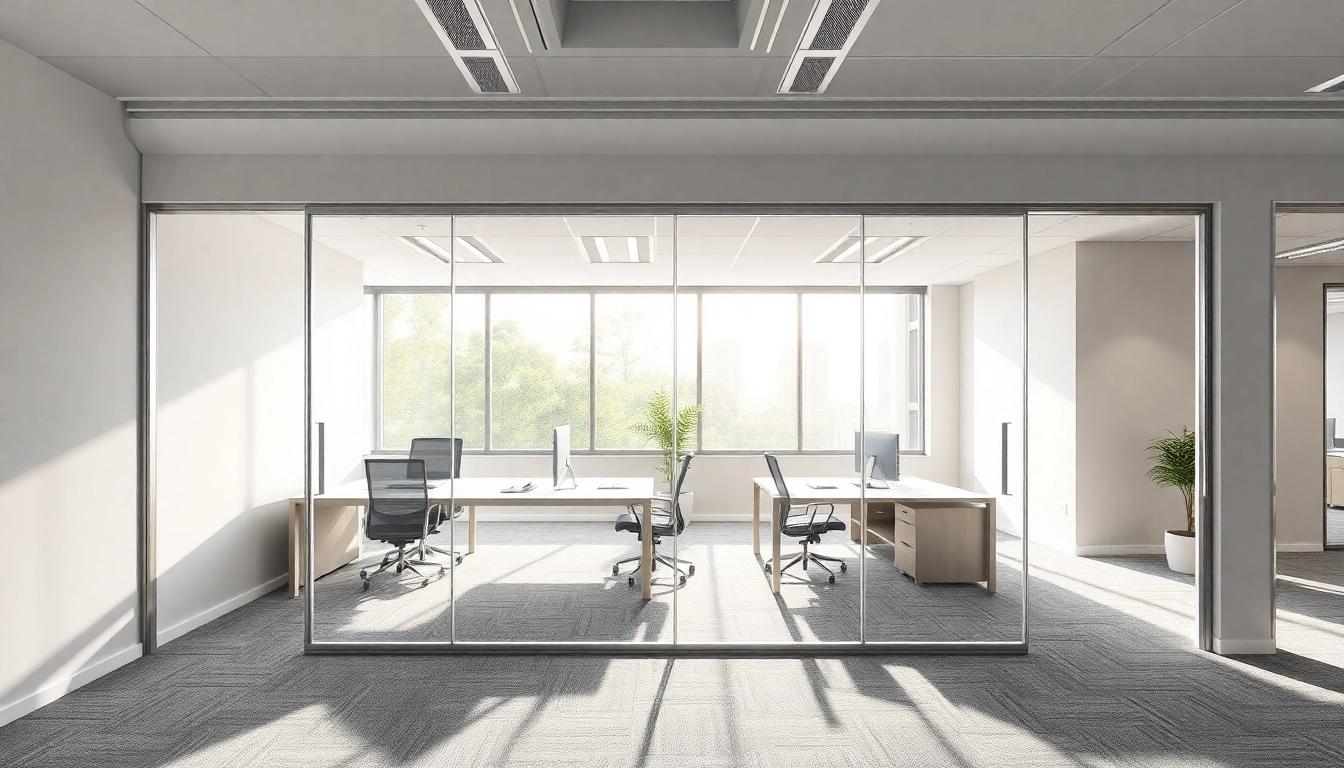
Understanding Movable Glass Partitions
Movable glass partitions are innovative architectural elements that transform interior spaces by providing flexibility and openness while maintaining a sleek aesthetic. These partitions have gained significant popularity in modern design, particularly in corporate, retail, and hospitality environments. Their ability to adapt to changing space requirements makes them an invaluable asset for dynamic spaces. With the increasing trend towards open-plan offices and multi-functional spaces, movable glass partitions are becoming a go-to solution for architects and interior designers alike.
What Are Movable Glass Partitions?
Movable glass partitions are non-load-bearing walls that can be easily reconfigured to create different layouts within a space. Unlike traditional fixed walls, these partitions can be opened or closed to redefine the ambiance or functionality of a room without significant construction work. They typically comprise panels made from either tempered or laminated glass and can feature various framing options, including framed, frameless, or a combination of both. The versatility of these systems allows them to be used in numerous applications ranging from office conference rooms to hotel event spaces.
Key Benefits of Using Glass Partitions in Design
Investing in movable glass partitions comes with a plethora of advantages, including:
- Space Optimization: Movable glass partitions maximize the use of available space, allowing for numerous configurations depending on the specific requirements of the moment.
- Enhanced Natural Light: Glass walls permit natural light to flow throughout a space, enhancing the overall ambiance and reducing the need for artificial lighting.
- Visual Connectivity: The transparency of glass partitions maintains visual connectivity between areas, promoting collaboration and a sense of openness without sacrificing privacy.
- Sound Insulation: Many glass partition systems are designed to provide acoustic privacy, offering sound control features that are essential in busy environments.
- Aesthetic Appeal: The modern look of glass partitions can enhance the overall aesthetic of a space, fitting seamlessly into contemporary design schemes.
Common Applications and Use Cases
Movable glass partitions find applications in various sectors, showcasing their adaptability. Common use cases include:
- Corporate Offices: In open office environments, these partitions can be used to create temporary meeting spaces or quiet zones without the permanence of traditional walls.
- Retail Spaces: Retailers can use glass partitions to segment different product areas while maintaining an open experience for shoppers.
- Hospitality: In hotels, movable glass walls allow event spaces to be configured according to the size and nature of events, from conferences to weddings.
- Educational Institutions: Glass partitions can convert standard classrooms into flexible learning environments, accommodating various teaching styles.
Types of Movable Glass Partitions
Frameless versus Framed Glass Systems
Movable glass partitions can be categorized into two primary types: frameless and framed systems. Both types have unique characteristics that cater to different design preferences and functional requirements.
- Frameless Glass Partitions: These systems offer a clean and modern aesthetic with seamless edges and no visible framework. They create a sense of continuity and openness, making them ideal for high-end office designs and upscale hospitality venues.
- Framed Glass Partitions: Framed systems incorporate metal or wood frames around the glass panels, providing additional support and enhancing durability. They can be designed to accommodate heavy traffic and can feature various finishes to complement the interior decor.
Acoustic and Non-Acoustic Solutions
When selecting movable glass partitions, it’s crucial to consider acoustic performance. Depending on the intended use of the space, designers can choose between acoustic and non-acoustic systems:
- Acoustic Solutions: These partitions incorporate sound-dampening materials that help minimize noise transfer, making them suitable for conference rooms or private offices.
- Non-Acoustic Solutions: For open environments where sound insulation is less of a concern, non-acoustic glass partitions offer aesthetic benefits and functional flexibility.
Customization Options for Your Space
Movable glass partitions can be customized to fit specific design themes and functionalities. Options for customization include:
- Glass Types: Options range from clear to frosted and tinted glass, allowing for privacy while still maintaining a stylish appearance.
- Operating Mechanisms: These can include sliding, folding, or stacking systems, varying in how they open and close, which can be tailored based on the available space.
- Finishing Touches: Users can choose frame materials, colors, and hardware styles to ensure the partitions complement the overall decor of the environment.
Installation and Maintenance
Installation Process and Requirements
The installation of movable glass partitions involves several steps that require careful planning and execution to ensure optimal performance. The typical process includes:
- Site Assessment: A comprehensive evaluation of the installation site is necessary. This assessment will determine structural considerations, electrical needs, and any site-specific challenges.
- Design Finalization: Collaborate with architects or interior designers to finalize the partition design, including dimensions, configurations, and customization options.
- Pre-Installation Preparation: Prepare the site by clearing any obstructions and ensuring the structural integrity required to support the partition systems.
- Installation: Professional installers will ensure that all components are properly aligned and securely mounted, verifying the functionality of sliding or folding mechanisms.
Regular Maintenance for Optimal Performance
To ensure the longevity and functionality of movable glass partitions, regular maintenance is essential. Recommended maintenance practices include:
- Cleaning: Use appropriate cleaning solutions to maintain clarity and appearance while ensuring that any dirt or grime does not affect the glass’s integrity.
- Lubrication: Regularly lubricate moving parts and mechanisms to prevent wear and ensure smooth operation.
- Inspection: Conduct periodic inspections to identify any signs of wear, misalignment, or damage that may require professional attention.
Common Issues and Troubleshooting Tips
Even the best systems can experience issues. Common problems might include:
- Sticking Panels: If panels are not sliding smoothly, ensure that tracks are clean and lubricated. Adjustments may be needed to align the system correctly.
- Noise Creation: If movable partitions are generating excessive noise when moving, consider checking installations for loose components or inadequate cushioning.
- Glass Breakage: While toughened glass is robust, it can occasionally crack or shatter. In such cases, seek professional repair or replacement services immediately.
Design Considerations for Movable Glass Partitions
Choosing the Right Style for Your Environment
When selecting movable glass partitions, the style must complement the design philosophy of the space. Consider factors such as:
- Architectural Style: Align the partition design with the existing architecture—modern, contemporary, or even classic themes should dictate the choice of frames and finishes.
- Functionality: Determine the primary purpose of the partitions—are they intended primarily for aesthetics, function, or both? This decision can influence various design aspects from thickness to operational mechanics.
Lighting and Aesthetic Integration
Lighting plays a crucial role in the effectiveness of movable glass partitions. Strategies include:
- Natural Light Utilization: Use existing windows and the movement of glass partitions to maximize daylight, enhancing the overall ambiance.
- Artificial Lighting: Incorporate lighting fixtures that complement the glass partitions, such as overhead lighting that highlights the glass without creating shadows.
Maximizing Space with Strategic Placement
The placement of movable glass partitions can significantly influence the functionality of a space. Best practices include:
- Traffic Flow: Analyze how people move through the space and position partitions to enhance the flow rather than disrupt it.
- Multi-Functional Spaces: Design partition layouts that can adapt easily to different configurations for various meetings or social events, thus maximizing the utility of a room.
Measuring Impact: Performance Metrics
Evaluating Flexibility and Space Utilization
To gauge the effectiveness of movable glass partitions, organizations can evaluate:
- Utilization Rates: Measure how often the partitions are adjusted or moved compared to their installation timeline to determine if they are effectively serving their intended purpose.
- Feedback: Collect feedback from users to assess how partitions affect workflow, collaboration, and office dynamics.
Assessing Acoustic Performance and Privacy
Understanding the noise control capabilities of glass partitions is vital, particularly in high-traffic environments:
- Sound Tests: Conduct sound tests to evaluate the acoustic performance against noise limits suitable for the intended use of the space.
- Client Surveys: Regularly survey client satisfaction regarding privacy and noise levels to gather data on the need for adjustments or improvements.
Analyzing Visual Appeal and Brand Image
The visual aspect of movable glass partitions directly influences perceptions of the organization:
- First Impressions: Track feedback on the visual impact of space modifications caused by the introduction of glass partitions during client or guest visits.
- Brand Consistency: Ensure that the design of glass partitions aligns with overall brand image, reinforcing the organization’s values and aesthetic.
